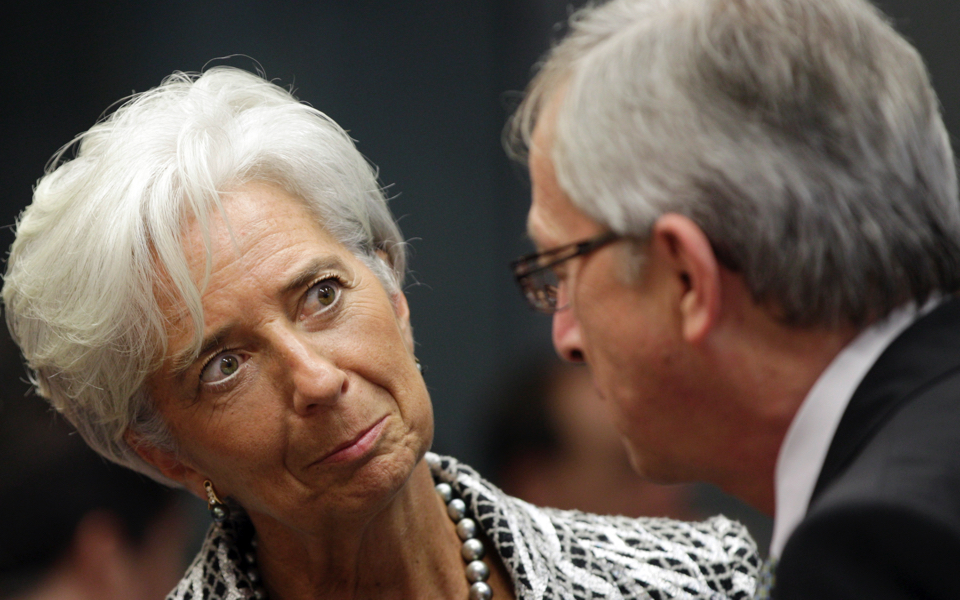The limitations of IMF involvement

Greece has finally exited its bailout on Monday, after eight long years under EU-IMF supervision. Rather than being a success, however, its experience clearly demonstrates the limits of the International Monetary Fund’s involvement in Europe’s affairs.
In a narrow sense, Greece’s three bailouts achieved their objective, restoring a degree of investor confidence and access to capital markets that was lost in 2009. This was helped by a long-awaited package of debt relief measures from eurozone finance ministers that was also more generous than expected.
But the country’s overall experience under eurozone and IMF creditors has been negative. The economy has shrunk by roughly 25 percent and its fundamentals remain extremely fragile: public debt has ballooned to just below 180 percent of GDP; unemployment remains stubbornly high; and the banking system is saddled with non-performing loans and capital controls.
When Greece’s troubles first began in 2009, there was a legitimate case for IMF involvement. The eurozone did not have the expertise, instruments or firepower to look after countries that could no longer attract private capital. In fact, quite the opposite: Article 125 of the EU’s treaties explicitly ruled out any bailouts for eurozone members. This changed only slowly, as eurozone leaders built up the bloc’s capabilities, eventually culminating in the creation of the European Stability Mechanism (ESM) in September 2012.
Yet at some point, the IMF’s role in Greece clearly became counter-productive. The IMF believed that all of Greece’s problems stemmed from its fiscal imbalances. The European Commission, however, was much more focused on so-called “structural” issues – reforms that would enable firms operating in Greece to hire and fire as economic conditions dictate; improve the ease of doing business; and tackle corruption and inefficiencies in the bloated public sector and judicial system.
These competing perspectives between Brussels and Washington led to a long-running standoff, with each side refusing to acknowledge the benefit the other’s proposed reforms would have on Greece’s economic recovery. Messy compromises invariably resulted in more austerity. This made no economic sense, yet was forced on multiple governments regardless of the political or social consequences.
European collaboration with the IMF only works when both sides essentially agree on the diagnosis of the problem. Thankfully, this was the case in Ireland, Spain, Portugal and Cyprus. Otherwise, as Greece’s case shows, it is a recipe for gridlock and economic self-harm.
Europe must therefore develop the confidence to act alone. The recent Franco-German declaration in Meseberg, Germany, on 19 June is a small step in the right direction. Here, Emmanuel Macron and Angela Merkel agreed to further strengthen the ESM: building the real expertise it needs to support governments through the process of economic restructuring, as well as instruments capable of acting pre-emptively to anticipate market crises – not only after the fact.
They should go further. The ESM’s governance is fundamentally flawed. Its “intergovernmental” structure gives eurozone members, especially the larger countries such as Germany, undue influence over its decisions. But electoral politics at the national or local level should not affect how the ESM manages countries under an adjustment program – as was so often the case with Greece.
Bringing the ESM under the EU’s treaties would be one way to better shield its decisions from politics. If this is unachievable, majority voting should replace the current system of unanimity voting. This would prevent any single country being able to hold the ESM’s deliberations hostage by wielding their veto.
This won’t be easy – all eurozone members won’t want to give other countries a larger say over their budgets than their own parliaments – but it is necessary if the ESM is serious about effectively nursing countries back to economic health.
To be clear, there were many other factors contributing to Greece’s woes. Berlin’s obsession with austerity and unfair mistrust of the Commission created the context the IMF was able to exploit. And numerous Greek governments proved unwilling to be accountable for what went wrong or serious enough to fix things. But Greece’s plight clearly demonstrates the dangers of the IMF’s involvement in Europe’s affairs.
As EU leaders work on agreeing bigger changes to the eurozone ahead of their critical meeting on December 14-15, and storm clouds gather over Italy, they should seize the moment to better look after their own backyard – by equipping themselves with the tools to do so effectively.
Rahman Mujtaba is managing director for Europe at Eurasia Group. He wrote this piece for Kathimerini.





